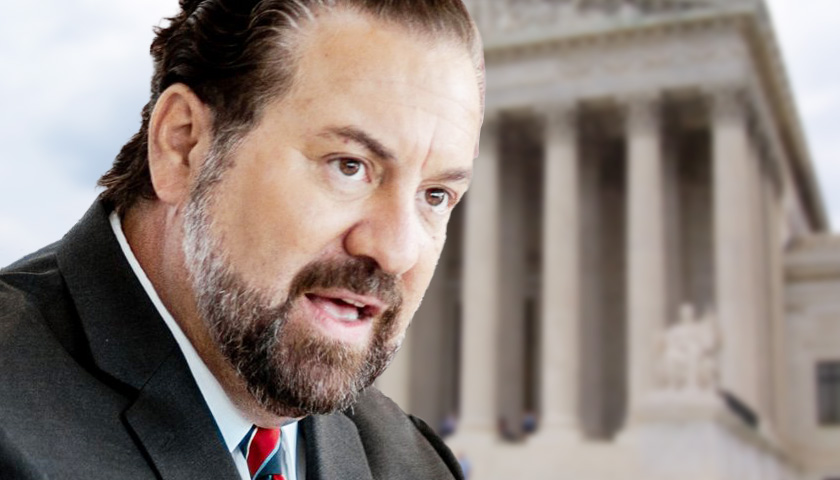Arizona Attorney General Mark Brnovich (R) released a statement applauding the recent Supreme Court of the United States (SCOTUS) opinion, which curbed the Environmental Protection Agency’s (EPA) overreach in the nation’s power sector.
“Today’s decision is a victory for the separation of powers and the ability of the free market to bring prices down,” Brnovich said in a press release. “The federal bureaucrats at the EPA do not get to pick and choose how America produces its energy.”
The press release states that under former President Barrack Obama, the EPA promulgated a rule claiming it had the authority to reshape the nation’s utility power sector through mandated emission standards. These standards were nearly impossible for coal and natural gas power plants to meet without “limiting operations or shutting down.”
The U.S. Supreme Court ruled against the EPA's unconstitutional overreach in the nation’s utility power sector in West Virginia v. EPA.
Today’s decision is a victory for the separation of powers and the ability of the free market to bring prices down. https://t.co/T7gJjuprdK
— Mark Brnovich (@GeneralBrnovich) June 30, 2022
The SCOTUS opinion on West Virginia v. EPA, written by Chief Justice John Roberts, was released Thursday, outlining the court’s decision to rule against the EPA.
According to the opinion, the EPA’s rule was the Clean Power Plan rule (CPP) in 2015, which aimed to limit carbon dioxide emissions from existing power plants. States would still set the actual enforceable rules, but the EPA determined the emission limit with which they had to comply. The EPA cited Section 111 of the Clean Air Act (CAA) for the authority to do this. The EPA sought “generational shifting,” which included moving from existing coal and natural gas plants to renewable sources such as wind and solar.
In 2019, the Trump administration repealed the CPP for exceeding the EPA’s statutory authority and replaced it with the Affordable Clean Energy rule (ACE). The ACE gave states the discretion to set emission standards and power plants flexibility to comply with those standards.
However, according to the opinion, several states challenged CPP repeal. The D.C. court of appeals decided that section 111 of the CAA does not require the limited view of the EPA’s authority that the Trump administration adopted, vacating the CPP repeal and the ACE.
Roberts wrote that the EPA’s effort to regulate emissions through the CPP broke the “major questions” doctrine, the idea that Congress must “speak clearly if it wishes to assign to an agency decisions of vast economic and political significance.”
Ultimately, Roberts argued that the EPA did not have the authority from Congress to carry out the CPP and the generational shifting it entailed.
“Capping carbon dioxide emissions at a level that will force a nationwide transition away from the use of coal to generate electricity may be a sensible ‘solution to the crisis of the day,'” Roberts wrote. “But it is not plausible that Congress gave EPA the authority to adopt on its own such a regulatory scheme in Section 111(d). A decision of such magnitude and consequence rests with Congress itself, or an agency acting pursuant to a clear delegation from that representative body.”
In a 6-3 vote, SCOTUS judged to reverse the D.C. Court of Appeals decision and repeal the CPP.
– – –
Neil Jones is a reporter for The Arizona Sun Times and The Star News Network. Follow Neil on Twitter. Email tips to [email protected].
Photo “Mark Brnovich” by Mark Brnovich. Background Photo “U.S. Supreme Court” by AscendedAnathema. CC BY-SA 3.0.




